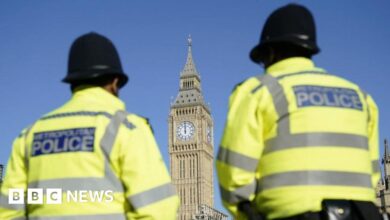Apprenticeship shakeup to shift focus to under-22s
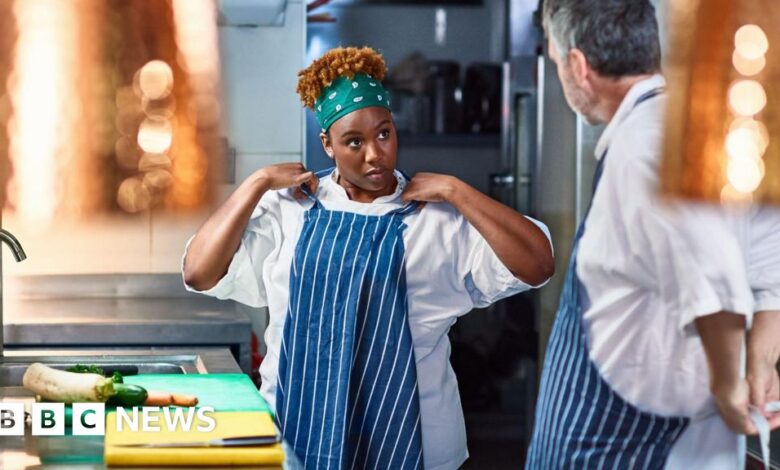
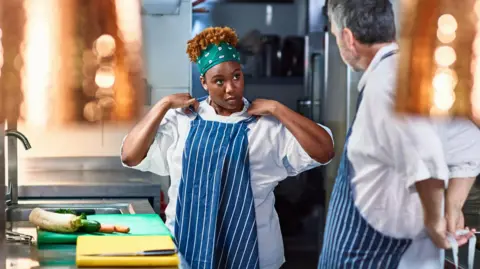 Getty Images
Getty ImagesThe government is promising more training for people aged 21 and under in England, as it presses ahead with controversial plans to scrap funding for postgraduate apprenticeships.
From January, only 16 to 21-year-olds will qualify for funding for level 7 apprenticeships – the highest level, considered equivalent to a master’s degree – under the plans confirmed on Tuesday.
This means many higher apprenticeships would have to be completely paid for by employers.
The Conservatives have previously described the proposals as a disaster which could undermine advanced NHS training.
Apprenticeships in England are available for those aged 16 and over, and combine practical training in a job with study.
They take between one and five years to complete, depending on their level.
A level 2 apprenticeship is considered the equivalent of a GCSE, while 6 and 7 are considered equivalent to a bachelor’s or master’s degree.
Overall the government is promising to create 120,000 more training opportunities for young adults, and those who need to retrain.
An increase in a charge paid by employers recruiting from outside the UK will be used to create 45,000 training places, building on existing programmes aimed at helping adults get into work.
The big shift in Tuesday’s announcement is to pull funding from the highest level apprenticeships, equivalent to a postgraduate or masters degree.
These level 7 apprenticeships are used by people training in a wide variety of roles, including accountants, tax advisors and solicitors, most of whom are already in work.
They are also a significant part of some NHS advanced training, such as for district nurses who want to a more specialist qualification.
Since an apprenticeship levy for large employers was introduced in 2017, there has been a boom in higher qualifications at degree or postgraduate level, called level 6 or level 7.
However, the numbers of young adults starting entry apprenticeships at level 2 has fallen.
Tuesday’s announcement is an attempt to push more of the money generated by the apprenticeship levy paid to government towards those under the age of 21.
Education Secretary Bridget Phillipson said: “When we invest in skills for young people, we invest in a shared, stronger economic future.”
She told BBC Breakfast the changes were “really good news for young people” and that it was “time as a country we took skills far more seriously than in recent years”.
She also said the move would help to address the problem of “too many people not in education, employment or training [Neet], too many people sat at home, which they don’t want to be.”
But Neil O’Brien, shadow education minister, said: “The decision to scrap higher apprenticeships will do damage to the public services, particularly the NHS.
“It will make it impossible for many young people who don’t go university to enter the professions.”
Rachel Anderson, from the North East Chamber of Commerce, said employers in her region were “ready to step up” to continue delivering apprenticeships, and that the funding “is very welcome, but it is not the whole solution”.
“Our further education colleges will need support to attract tutors, especially in construction and engineering, where shortages are acute. Employers will also need support to offer a greater number of apprenticeship places,” she added.
Among the other changes are seven new foundation apprenticeships in sectors such as health and social care, engineering and construction.
These are at the level of GCSEs and are intended to provide a broad introduction to work before students specialise.
Young adults could then go on to study for specific jobs.
Chachomwe Chiwaya, who is doing a level 2 apprenticeship in hospitality at Leeds City College, told BBC News the course and the experience of working front-of-house in a café has given her more self-belief.
“I’ve not always been as confident as I am now,” the 21-year-old said.
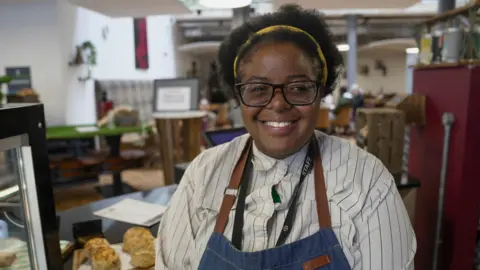 BBC / Gemma Laister
BBC / Gemma Laister“I’ve always been a shy kid growing up, so it takes a while for my confidence to grow.
“But with this apprenticeship, it gets me out of my comfort zone, it gets me talking to customers, and I’ve made some good relationships with them.”
She said she dreams of working abroad in a hotel, either as a receptionist or restaurant staff, or on a cruise ship – “anything that let’s me see the world”, she says.
Isabel Hunt, 19, said she did not remember much talk of apprenticeships when she was at school, and felt like pupils were pushed towards college or university instead.
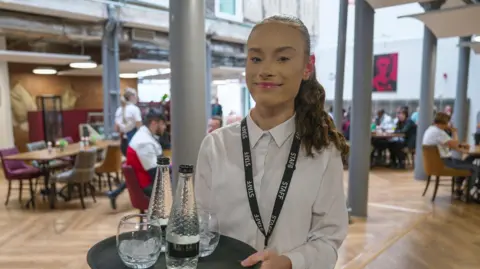 BBC / Gemma Laister
BBC / Gemma LaisterShe recently progressed to a level 3 hospitality apprenticeship at Leeds City College, and is working towards retaking her maths GCSE.
“It gives you so many opportunities,” she says.
“You’re getting the experience and learning on the job.”
She says she is keeping her options open but wants to stay in the hospitality industry going forward.
Additional reporting by Rahib Khan.


